Shopify
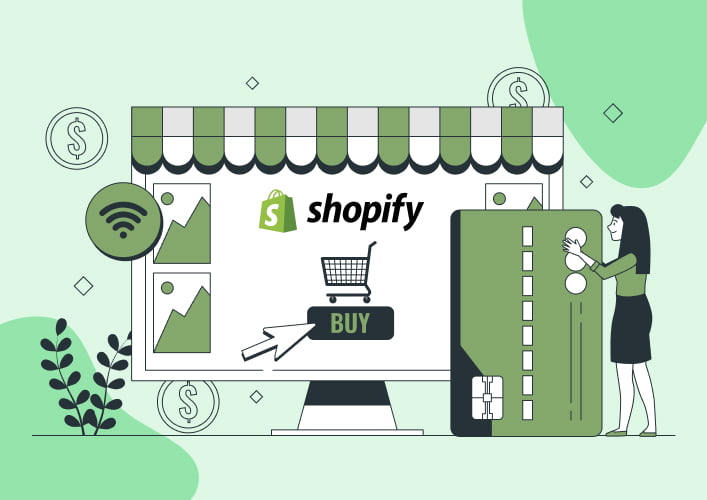
Shopify is a really great online platform for businesses that want to sell their products. It’s used by over 600,000 online shops and has millions of active users all around the world. Shopify has generated over $100 billion in sales, which shows that it’s very successful.
One of the best things about Shopify is its sales features. It has a wide range of tools that can help you manage your inventory and sell your products through different channels. Customers seem to love it too, as Shopify has a very high satisfaction rating of 93%.
Shopify offers different pricing options, and while it may seem a bit expensive, many people believe it’s worth the investment. They even offer a free trial and a special deal where you can get the basic plan for just $1 for three months, so you can try it out and see if it’s the right fit for your business.
For larger businesses with more complex needs, there’s Shopify Plus. It’s an advanced version of Shopify designed for high-volume businesses. It has a variety of features and can handle big operations while ensuring reliability and security. Shopify Plus is becoming more and more popular because of the great functionality it offers.
Overall, Shopify is a powerful and user-friendly platform that can help businesses of all sizes sell their products online. It’s definitely worth considering if you’re looking to start or expand your online store.
Squarespace
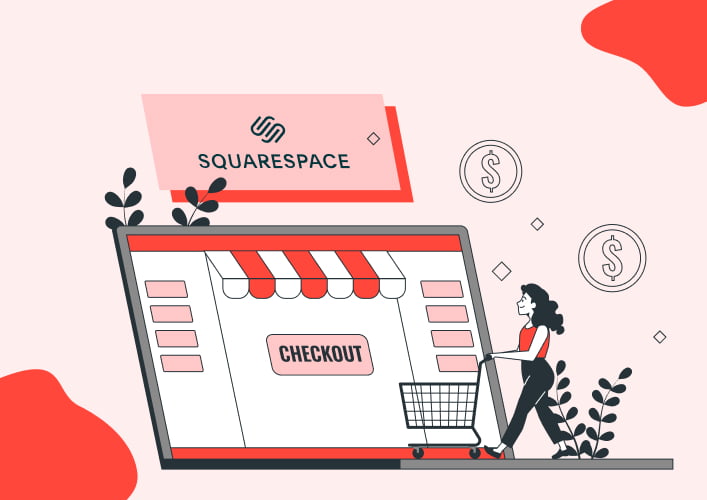
It is considered as the best overall platform for stunning designs.
One of the primary reasons people choose Squarespace is the website builder. The simple drag-and-drop interface allows you to easily customize the website Squarespace’s award-winning templates without knowing HTML, JavaScript, or CSS. There are over 100 of these templates, with new ones being updated on a regular basis. It provides a template for you whether you need one with a blog, a portfolio, an e-commerce site, or all three.
However, some customers argue that because so many of the designs look the same, it’s simple to recognise when a site is built using Squarespace. The easiest approach to avoid this is to make certain that your site has a consistent color palette and branding that helps it stand out.
Woocommerce
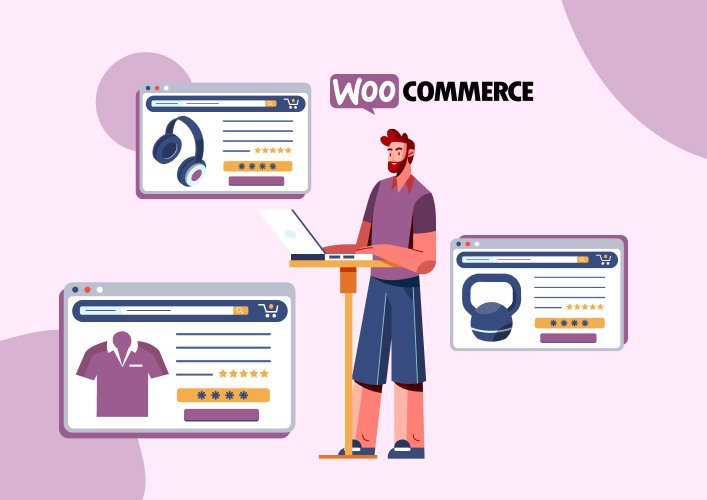
WooCommerce is a WordPress plugin that is free to use. However, you will still have to pay additional costs to get started. WooCommerce cost includes a domain name, hosting, an SSL certificate, a theme, design, and additional plugins to help with shop administration. It is one of the most widely used open source e-commerce platforms. Because open-source is free, you maintain complete control of your store’s content and data.
Use WooCommerce for a shop that powerfully integrates content and commerce, whether you’re beginning a business, moving brick-and-mortar retail online, or designing sites for clients.
It comes with various features, like it creates appealing storefronts with themes that are appropriate for your brand and business. Moreover you can increase income by optimizing the shopping cart experience. It can also allow you to customize product pages in minutes.
Bigcommerce
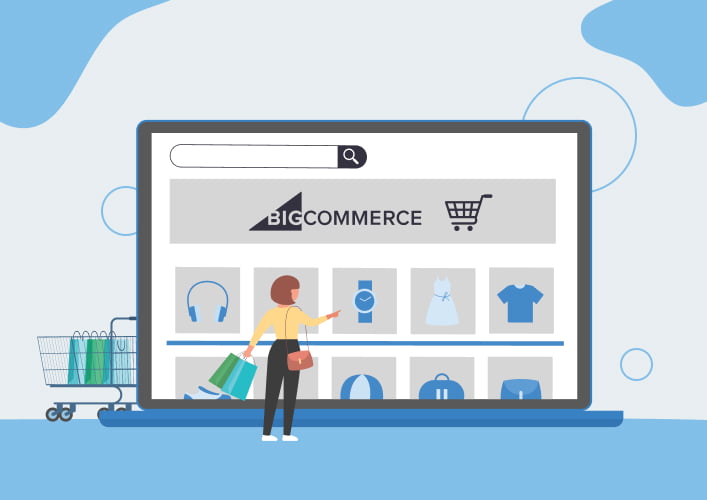
BigCommerce is a well-known hosted eCommerce platform that offers merchants and retailers software-as-a-service (SaaS). Bigcommerce comes with a powerful website builder that gives you the freedom to modify even the smallest detail. It has 12 free templates and the paid version ranges from $150 to $400 . If you are confident and tech survey you can use it to its full potential. It also has some of the payment gateways such as Paypal, Amazon and Stripe. Alternatively store owners can set their payments methods by bank transfer or check. Overall, BigCommerce allows you to create fully-detailed make listings on the back end, while buyers have enhanced power to discover exactly what they are searching for on the front end. This makes the platform an excellent choice for large organizations seeking rapid development without sacrificing performance.
Wix
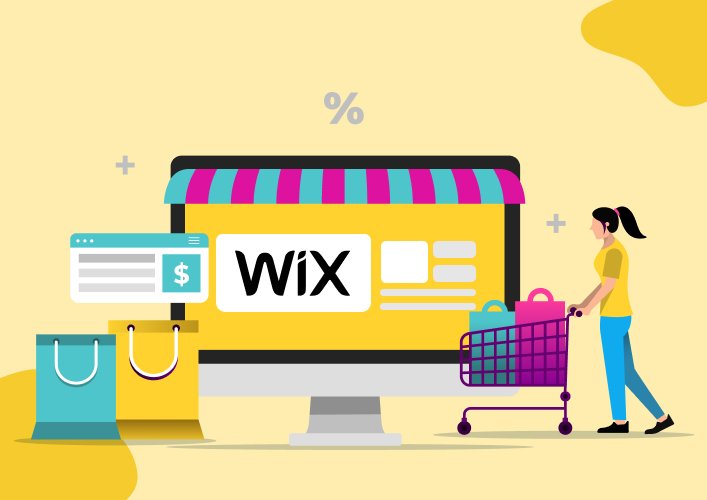
Wix is widely regarded as one of the top eCommerce platforms for small enterprises with limited inventory and a wide range of tools. It stands out as end to end web development for your business goal, empowering users to create fully functional eCommerce websites. Wix is particularly well-suited for small businesses and aspiring entrepreneurs who desire a robust website builder that seamlessly integrates eCommerce features.
Wix boasts a range of powerful capabilities that enhance the eCommerce experience. These include advanced features like order tracking, abandoned cart recovery, dropshipping, print-on-demand services, and automated sales tax calculations. Moreover, Wix offers a vast selection of over 800 professionally designed website templates, many of which are available for free. Alternatively, users can leverage Wix’s Artificial Design Intelligence (ADI) to effortlessly create their websites by answering a few simple questions.
Conclusion
In conclusion, when it comes to choosing the best eCommerce platform, Shopify stands out as the top choice. With its extensive range of features, user-friendly interface, and robust functionality, Shopify provides a seamless and efficient online selling experience. It offers a wide array of customizable themes, a secure payment gateway, reliable customer support, and extensive app integrations, making it a comprehensive solution for businesses of all sizes. Shopify’s reputation as a leading eCommerce platform is backed by its strong track record and positive user feedback. Its versatility and scalability make it an ideal choice for businesses looking to establish and grow their online presence. Therefore, selecting Shopify ensures a reliable and effective eCommerce platform that meets the needs of businesses in a competitive online marketplace.